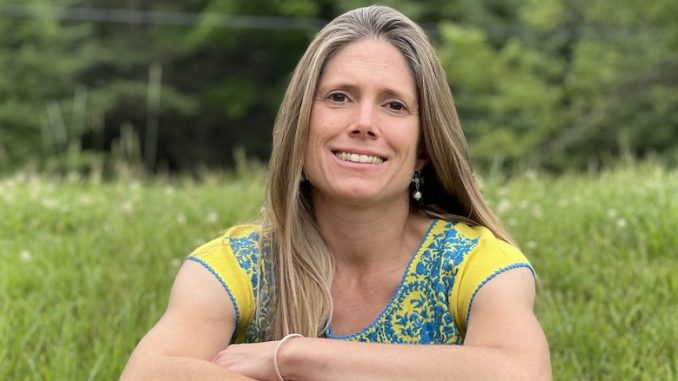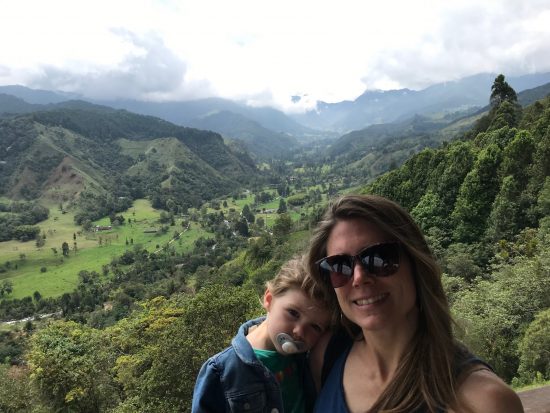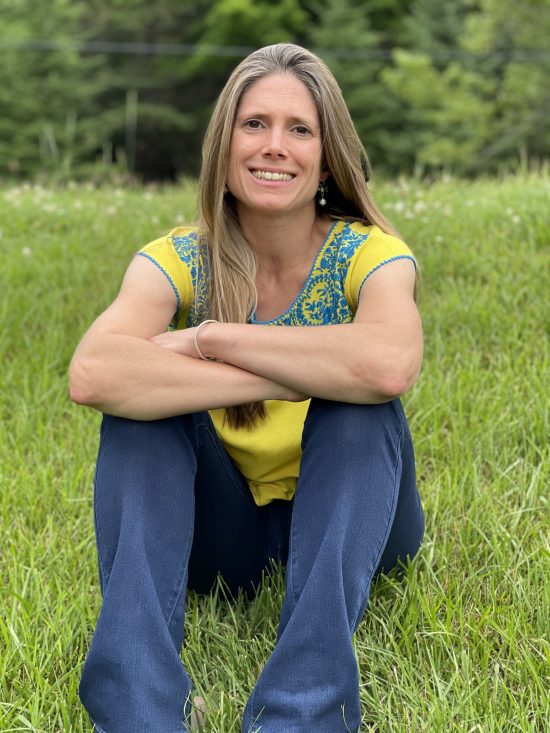
We get to know Food 4 Farmers’ new executive director.
BY CHRIS RYAN
BARISTA MAGAZINE ONLINE
Photos courtesy of Aly Welch
Food 4 Farmers is a nonprofit organization that collaborates with Latin American coffee-farming communities to build lasting solutions to hunger and improve livelihoods. Recently, the organization announced that it has hired Alyson Welch as its new executive director. Alyson (she/her), who goes by Aly, has more than 15 years of experience in development, primarily in Latin America, and was formerly responsible for a large portfolio of USAID-funded projects focused on the environment, economic development, governance, and land rights issues. We talked to Aly about her experience with coffee both in consumption and in the development world, her new role, and much more.
Chris Ryan: What was your relationship with coffee growing up? Was it consumed in your household?
Aly Welch: Growing up in rural Vermont, I always woke up to the smell of a fresh pot of coffee. My parents both drank coffee—the supermarket, pre-ground stuff in a big can. I began drinking coffee during my years at the University of Vermont but didn’t start appreciating coffee until I met my husband while in grad school. My husband was a barista during high school and college, and loved coffee and learning about the communities where it was produced. Our first vacation together to Ecuador and Colombia included several visits to local coffee shops that focused on regional production.
Since then, every work trip and vacation has included a visit to a coffee cooperative or local coffee shops. In 2013, we traveled to a cooperative in Aldea Tzampetey, Guatemala, and saw firsthand the impact of coffee-leaf rust, and the challenges members faced getting their coffee to export markets. In 2019, we spent a week in Eje Cafetero in Colombia, visiting Quindo, Risaralda, and Caldas, and stayed on a coffee farm.

How did you become interested in international development as a professional focus?
My parents were both teachers at our local high school, and seeing the impact they had on our community inspired me to pursue a field where I could have a positive impact. When I attended the University of Vermont (UVM), I initially focused more on playing field hockey than my future career plans. After more than two years on the team, I realized I wasn’t going to make it as a professional field hockey player, and signed up for an exchange between UVM and the University of Havana in Cuba.
Before leaving, our professors asked us to bring things that were difficult to find in Cuba, including soap and other basics I took for granted. The trip opened my eyes to a world of inequalities and sparked a passion for the region, including the language, food, culture, and music. I didn’t speak Spanish, but the trip made me want to learn—as well as learn more about everything Cuba-related. I knew then I wanted to work in international development, and after entering the workplace, everything built toward that goal.
Has coffee been a frequent element of development projects you’ve worked on in Latin America? How do you feel about the crop’s potential to impact farming families and improve livelihoods?
Many of the projects I have managed in Colombia, Guatemala, and Honduras have focused on economic development and livelihood diversification. Coffee, along with other crops and livelihood strategies, can make a lot of sense for some communities. However, I think it’s a mistake to focus on any single crop or income source. Events of the last year like the pandemic, Hurricanes Iota and Eta, droughts, and other climate change impacts have devastated farmers who depend solely on coffee.
Food 4 Farmers Board members like Rick Peyser have helped me understand how generations ago, most coffee-farming families operated well-diversified farms, had livestock, were able to produce most of what they consumed on the farm, and used income from coffee to purchase only what they did not produce. Now, most small-scale coffee-farming families are dependent on coffee, with coffee often being all they produce and their only source of income. As Rick says, having all their “beans in one basket” has left coffee-farming families vulnerable to the volatility in the market and the impacts of climate change.
From an economic perspective, small-scale coffee farmer income from coffee is less than it was 25 years ago. When adjusted for inflation, it’s clear that coffee alone is not enough to sustain farming families and improve livelihoods over the long-term. This is why our work at Food 4 Farmers to help coffee-farming families in Latin America diversify their livelihoods is so important. On farms that produce a variety of crops for food and income, families are generally more food secure themselves, with the ability to sell their produce through local markets to improve livelihoods. More earnings give farmers the resources they need to invest in their families and their coffee farms, and improve the quantity, quality, and prices they receive for their coffee.

Can you describe how you feel joining Food 4 Farmers? Why was the organization appealing to you, and what is your vision for the near future for F4F?
I first learned about Food 4 Farmers in 2013 and was intrigued by their locally grounded approach and deep ties to the communities in which they work. I had always dreamed of having the opportunity to work for a mission-driven organization that focused on Latin America and was based in Vermont (two of my favorite parts of the world). I’m thrilled to make that dream a reality and work so closely with the co-founders (Marcela Pino, Janice Nadworny, and Rick). Food 4 Farmers celebrates our 10th anniversary of work this year, so joining the organization now feels very timely. It’s a great opportunity to reflect on the past 10 years, talk together about lessons learned, and strategically plan for the future so we can continue to help coffee-farming families improve their livelihoods, and quality of life. As we all know, coffee-farming families continue to face extreme challenges from the pandemic, climate change, and volatility in the market, and our goal is for Food 4 Farmers to reach as many families as possible.

